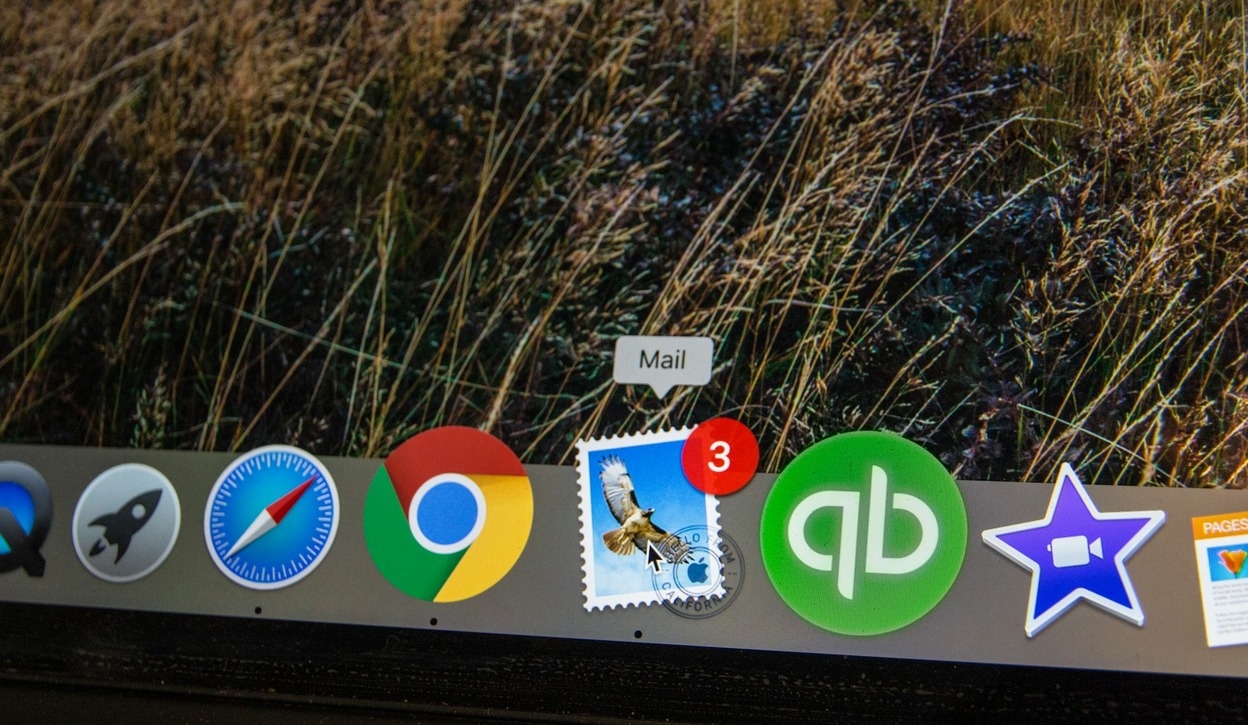How to Remove My Life From Google?
Laura Martisiute
Reading time: 16 minutes

Table of Contents
After hearing stories about people’s private details winding up in strange places online, I wanted to find out how to remove my life from Google.
This guide will catch you up on what you need to know when it comes to Google’s data collection practices. It will also walk you through how your personal information ends up on Google Search and other places online.
This guide is divided into two parts:
- How to Remove My Life From Google, i.e., how to delete your personal data from Google itself as well as Google services such as Google Search. Plus, other sites on the internet.
- How to Remove Google From Your Life, i.e., how to start the process of “degoogling.”
How to Remove My Life From Google
Here’s how I removed my life from Google – and how you can do the same.
Data Google has about you
First, I started by removing the personal information that Google had collected about me throughout the years of my using its products and services. Although Google does not sell this data per se, it is used for targeted advertisement.
To remove all the data Google has about you in each service or app that you use, do the following process on each device that you’d like to remove the data from:
- Go to your My Activity page on Google and sign in as needed.
- Above the list of your activity, you’ll see a “Delete” button.
- You can then click “Always” or “All time,” depending on the operating system.
- Alternatively, you can remove your activity from a certain time period.
If you only want to remove your Google activity from specific Google products or services, this guide walks you through how to remove your data from Google’s various apps step-by-step.
Tip: Use Google Takeout to see (and export) the data that Google has collected about you.
Personal information on Google Search
Next, I tackled the personal information that appeared about me in Google Search results. Google lets users remove personal data that threatens their privacy and safety, including contact details and private documents.
Start with a Google search on yourself. After typing in your name, browse through the results page until you find a site with information you’d like to remove. Once you’ve found one, click the three dots next to the result and click “Remove result” at the top.
At this point, you’ll be prompted to pick a reason for asking for the removal of the information. If it includes your address, phone number, or other contact information, you can select “It shows my personal contact information” as the justification. This can help you avoid doxxing, identity theft, and other threats.
Alternatively, you can fill out this form to file a personal data removal request.
Information other sites have about you
Removing my personal information from Google Search results did not actually remove it from the original source, i.e., the website it was posted on.
To delete my data from these sources, I had to go to each site hosting my information and either a) remove my data myself (if I owned the site, like a blog or social media page) or b) contact the website owner.
For data broker sites, I had to make an opt-out request to each broker.
Personal
By far the easiest websites to remove your personal data from are the ones that you own.
Blog or website
If you have a website or blog with your contact information on it, consider limiting what you’re sharing and anonymizing what you can. Use a contact form instead of putting your full email address on a webpage. Similarly, rather than naming the exact city that you live in, share the region instead.
This is something that I was long overdue to do – I constantly get messages to my personal email because I had shared my contact details on a personal blog years ago.
Social media profiles
Your social media pages can hold a wealth of information, too. Make your social media accounts private or visible to only friends. Hide your identifying details, such as your date of birth, home address, and place of work, from public viewers.
I hadn’t shared much on social media to begin with, but after reviewing my accounts, I noticed that my Facebook profile had my date of birth on it.
It’s not a big deal, but I changed it to “Only Me” for the audience. Especially if you use your date of birth as part of a password or passcode (which you shouldn’t, but that’s another article), that kind of information can put you at risk.
Other personal websites/accounts
Lastly, if you have a forum profile or maintain a user profile on any other website (such as Amazon), make sure you limit or entirely remove information that personally identifies you for optimal online privacy.
I learned this the hard way after several people on Reddit, an online forum, were able to track down my LinkedIn and personal email – even though I thought I had not shared any identifying details. In this case, it’s always best to have several Reddit accounts for different communities and avoid sharing anything too personal.
External
External websites can be a bit tricky, as it is generally up to the person who owns the site to determine whether or not they should remove your personal information.
Your first step should be to contact the owner directly. If an email address or contact form is visible on the site, use that and express clearly, politely, and succinctly what information you would like removed.
Some websites don’t make it clear as to who owns them. In those instances, your best bet is to go to Whois and enter the URL that you’d like your data removed from. Once the report comes back, you should see an entry under “Registrant email.” Reach out to that email and request that your information be removed.
Data brokers
Data brokers are something else altogether. These websites exist exclusively to harvest your personal (and professional) information – including your full name, aliases, home address, phone numbers, email address, social media profiles, education, occupation, details on family members, and even photos – and sell it to others.
You can read more about data brokers in our comprehensive guide on them.
Here’s what a typical data broker profile looks like:
Often, these profiles appear on the first page of Google when someone searches for your name:
Because it’s their business model, removing your personal information from these websites can be a hefty task to take on.
You’ll need to contact every single data broker to complete the opt-out process (by filling out a form on the website or sending an email). Follow our opt-out guides to learn how to do so (the steps differ from one broker to the next).
Some of our popular opt-out guides include:
- How to remove yourself from Whitepages.
- How to remove yourself from Spokeo.
- How to remove yourself from BeenVerified.
- How to remove yourself from PeopleFinder.
- How to remove yourself from Radaris.
- How to remove yourself from People Background Check.
- How to remove yourself from TruthFinder.
- How to remove yourself from MyLife.
- How to remove yourself from Intelius.
- How to remove yourself from Fast People Search
- How to remove yourself from Arrests.org.
- How to remove yourself from CheckPeople.com
- How to remove yourself from Instant Checkmate.
Keep in mind that data brokers renew their databases when they collect more information about you, meaning you’ll need to repeat the process again and again.
You can avoid being on the data broker opt-out treadmill by subscribing to a data broker removal service like DeleteMe to handle all that work for you. Read reviews of our service here.
Either way, getting out of the data broker marketplace is an important step for your privacy.
How to Remove Google from Your Life
It is certainly possible to “DeGoogle” your life, and if you’re serious about leaving minimal tracks online, it’s the way to go.
However, remember that some of Google’s features rely on user data for convenience, such as storing URLs, bank account information, addresses, and your video watch history. If you can live without those features, these are the steps you’ll want to take to get DeGoogling.
I am still on this journey. I’ve only managed to replace Chrome – not much, but it’s a start. If you’re truly serious about DeGoogling your life, it might help to join a community like DeGoogle on Reddit.
Here are some product and service suggestions that might be a good replacement for Google. But – make sure you do your own research, too.
Chrome
With its built-in Google Search feature, Chrome is a popular choice for many users. But in Mozilla’s “Terms of Service; Didn’t Read,” a community project that look at major internet sites’ terms of service and privacy policies, it gets a grade of D for privacy – not very good.
Opt out of Google Chrome’s data collection practices by choosing another browser like Firefox, Vivaldi, or Safari, depending on your device. The New York Times has a list of browsers that are better at respecting your privacy.
Personally, I use Brave. What I like about it is that it shows how many trackers and ads it blocked. By blocking these, it also works faster (three times faster than Google Chrome, according to Brave themselves) because less stuff needs to be loaded on every page you go onto.
Google Search
The amount of tracking Google performs with each logged-in search can be extreme.
If you’re looking for a way to search online without giving up your privacy, consider using DuckDuckGo or another privacy-friendly search engine. Comparitech has a list of the best private search engines that won’t snoop on you.
Brave also has its own search engine, but I find Google more convenient.
Android
The hard truth is that it’s almost impossible to avoid Google’s tracking if you’re using an Android device since the OS is built by Google. As such, your location and time will be pinged whenever you open an app.
Your workaround to this, if you want to use a smartphone and ditch your Android phone, is opting for an iOS device. That being said, some studies show that iPhones are no better at protecting your privacy than Android phones. Oh well, there are always dumbphones, right?
Gmail
Suitable alternatives to Gmail that value privacy are unfortunately few in number, but there are a few recommended email services that might fit the bill. Mail.com is a simple service that runs on ad revenue, and ProtonMail is another option with a free user plan. Both have paid plans for those looking for more features.
Google Calendar
Apple users can easily transition from Google Calendar to iCloud Calendar, while Windows users get a free version of Microsoft Outlook’s calendar by having a Microsoft account.
YouTube
If you’d like to catch some clips of your favorite shows or full episodes without going onto YouTube, you can check out privacy-forward websites such as Vimeo, the Internet Archive, or D.tube.
Avoid Twitch, Facebook Watch, and Crackle if you’re looking to dodge data tracking.
Blogger
Blogger users have two viable alternatives to continue being able to readily share their hobbies, passions, and interests with others. WordPress.com is free to use, with paid options available to those looking to expand the available features. Another favorable choice for privacy is Ghost, which runs tracker-free without any settings changes required by users.
Google Hangouts/Meet
There are multiple free alternatives to Google Hangouts/Meet with proven track records for user security, including Jami and Facetime.
Google Maps
Apple users have a quick and easy method to plan their routes and get directions outside of Google Maps: Apple Maps. If you don’t use Apple or prefer a different interface, OpenStreetMap may be the best free option.
Google Earth
OpenStreetMap is a viable solution for some searches, or choose Zoom Earth if you’re looking for something with similar features and no privacy concerns.
Chromebook
Chromebooks are built on Google’s OS, meaning you can’t do much with them without Google knowing about it. Macbooks are a good potential solution, coming with Apple’s noteworthy privacy policies.
Fitbit
Garmin’s products don’t require external connections to track your runs, meaning you can keep the data accessible only to yourself. If you’re in the market for a new fitness tracker, have a look at Mozilla’s device privacy guide to help make your decision.
Google Pay
There are a lot of options for making digital payments besides Google Pay when it comes to making transactions securely with minimal activity tracking. Apple Pay is a solid choice, and so is Samsung Pay or Zelle.
Google Analytics
Google Analytics can be a very informative tool for webmasters, but what they may not realize is that Google is learning a lot, too – about every single visitor to the website. You can circumvent this data collection and still access powerful tools by using Simple Analytics or Fathom, both of which are paid services.
Google Docs
While Google Docs can be convenient for team collaboration, it also comes with Google’s spying eyes. You can trade them in for Microsoft’s trackers by using Office online (less recommended) or iWork if you and your team have access to Apple products.
Google Drive
There are a plethora of options when it comes to storing your files online, meaning it’s easy to break the chain from Google Drive. DropBox is one of the most well-known. Or choose Box.com to get more storage on the free plan.
How to Remove My Life From Google FAQs
Here are some common questions that people have about removing their life from Google.
How to remove my age from Google Search?
Unfortunately, you probably can’t. Your age doesn’t technically come under any of the content that Google says it will remove from Google Search. To remove other personal information, you can submit a request to Google. If you’re signed in to your Google account, simply hit the three dots next to the result on Google Search and choose the option “Remove result.” Then, select a reason and follow the steps that appear in front of you.
How to request removal of personal data?
If your data appears in Google Search results, you can ask Google to remove it straight from the results page. Click the three dots beside the result and select “Remove result.” Then, choose the appropriate reason and follow the steps that show up.
Note that this will only remove your personal data from Search – not the site it appears on. This means that people will still be able to see your personal information through the site where your details are posted and other search engines like Bing.
If your data is on someone else’s site, you’ll need to contact the owner via their email or a contact form on the website. You may need to find out who the owner is by visiting Whois.com.
Lastly, if your data is on a data broker website, such as Whitepages.com, you’ll need to follow the opt-out process for that website (often again and again, as they will renew their databases). You can see our opt-out guides here or subscribe to our data broker removal service to have your personal information removed for you.
How to opt out of Google personal information collection?
There’s no clear path to opting out of Google’s data collection. According to Terms of Service; Didn’t Read, a community project that analyzes major internet sites’ terms of service and privacy policies, Google collects and stores data about you even if you don’t interact with its services.
However, you can limit your exposure to Google’s data collection by deleting unused Google apps, clearing your account activity from the various Google services, and deleting your Google Account.
Why is all my information on Google?
As soon as you sign up for a Google service, you’ve created an online profile that becomes attached to your digital identity. This allows unparalleled convenience and a customized user experience – at the cost of your privacy.
It’s not all Google’s fault, of course. A lot of information on the internet is there because we put it there – on our social media profiles, websites, forums, and so on. Data brokers scrape this information, too, compiling it in a tidy package to sell to others, including advertisers, law enforcement, and scammers.
The good news is that you can take steps to remove the amount of data that appears about you on the internet. Take down personal information from personal sites and social media profiles, delete the data that Google has collected about you, ask website owners to delete your personal info, and opt out of data brokers.
Our privacy advisors:
- Continuously find and remove your sensitive data online
- Stop companies from selling your data – all year long
- Have removed 35M+ records
of personal data from the web
Save 10% on any individual and
family privacy plan
with code: BLOG10
news?
Don’t have the time?
DeleteMe is our premium privacy service that removes you from more than 750 data brokers like Whitepages, Spokeo, BeenVerified, plus many more.
Save 10% on DeleteMe when you use the code BLOG10.















